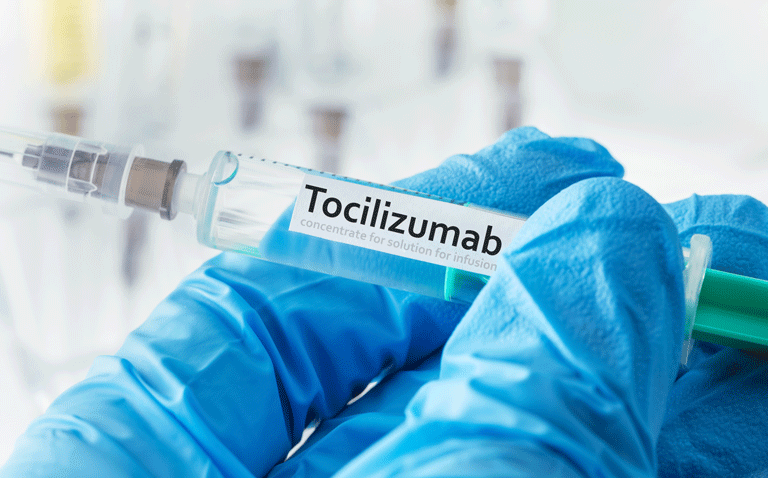RoActemra is EMA-approved for severe COVID-19 in adults receiving systemic corticosteroids and supplemental oxygen or mechanical ventilation
RoActemra (tocilizumab) has received approval from the EMA for the treatment of adults with severe COVID-19 and who are in receipt of systemic treatment with corticosteroids and requiring supplemental oxygen or mechanical ventilation.
Until the COVID-19 approval, RoActemra was already approved for use in the management of inflammatory conditions including rheumatoid arthritis, systemic juvenile idiopathic arthritis, juvenile idiopathic polyarthritis, giant cell arteritis and cytokine release syndrome (CRS).
Tocilizumab is a monoclonal antibody that works by inhibiting the binding of interleukin-6 (IL-6) to its receptor and in doing so, Inhibits IL-6 signal transduction of inflammatory mediators in rheumatic diseases. However, emerging evidence has indicated a role for IL-6 signalling in patients hospitalised with severe COVID-19, especially those who are critically ill.
Clinical data
The approval for RoActemra was based on data from three phase III trials. In COVACTA, patients hospitalised with severe COVID-19 pneumonia were randomised, 2:1 to either a single intravenous infusion of tocilizumab (at a dose of 8mg per kilogram of body weight) or placebo. The primary outcome was clinical status at day 28 on an ordinal scale which ranged from 1 (discharged or ready for discharge) to 7 (death). In the published results of the trial, tocilizumab did not result in a significantly better clinical status or lower mortality than placebo at 28 days.
In EMPACTA, hospitalised patients with COVID-19 pneumonia, not receiving mechanical ventilation, were randomised to receive standard care plus one or two doses of either tocilizumab (8 mg per kilogram of body weight intravenously) or placebo. The primary outcome was mechanical ventilation or death by day 28 and the results showed that although tocilizumab reduced the likelihood of progression to the composite outcome of mechanical ventilation or death, it did not improve survival.
In the REMDACTA study, patients were again randomised (2:1) to tocilizumab plus remdesivir or placebo plus remdesivir. The primary outcome was the time from randomisation to hospital discharge or “ready for discharge” (category 1 on a 7-category ordinal scale of clinical status) to day 28. As with the other trials, when published, the authors concluded that ‘tocilizumab plus remdesivir did not shorten time to hospital discharge or “ready for discharge” to day 28 compared with placebo plus remdesivir.’
However, despite these somewhat negative findings, a systemic review assessing the efficacy of IL-6 antagonists in patients hospitalised for COVID-19, in nearly 11,000 patients, concluded that ‘administration of IL-6 antagonists, compared with usual care or placebo, was associated with lower 28-day all-cause mortality.’
Details of the revised indicated use in COVID-19 can be found in the summary of product characteristics.










